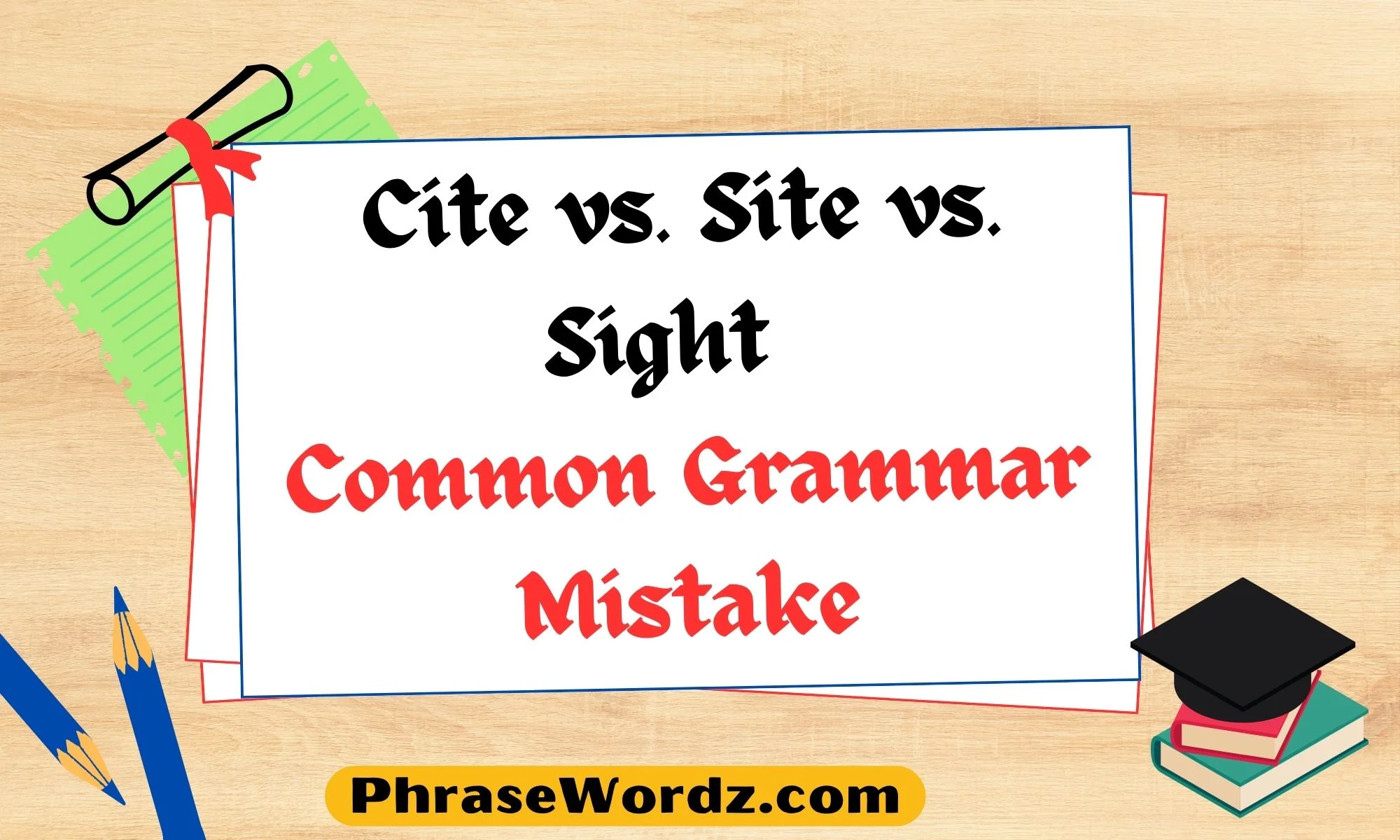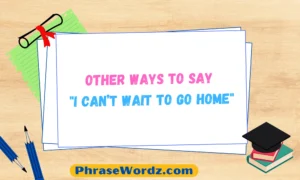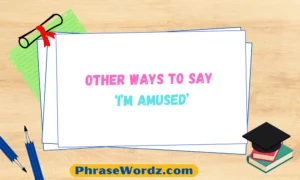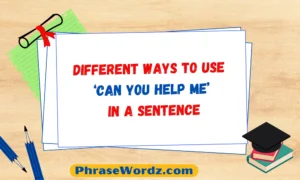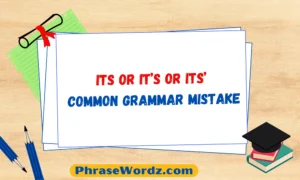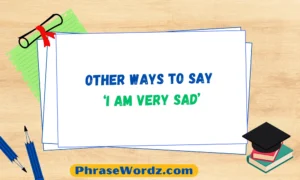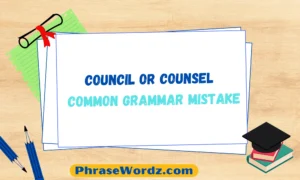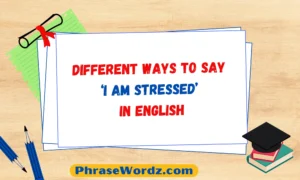When writing or speaking, it’s easy to confuse words that sound similar but have very different meanings. One such trio of homophones is cite, site, and sight. Though they may sound identical, their uses and definitions vary significantly. Misusing these words can lead to confusion and misunderstandings, especially in formal or academic writing. Let’s break down each word, its meaning, and how to use it correctly. I’ll also provide examples of scenarios to show how each term should be applied.
Discover creative and engaging alternatives to say ‘I Am Very Interested’ and elevate your communication skills effortlessly!
Here is the list of Cite vs. Site vs. Sight – Common Grammar Mistake
What Does “Cite” Mean?
Common Misuses of “Cite”
How to Properly “Cite” a Source
When to “Cite” in Academic Writing
The Role of “Cite” in Avoiding Plagiarism
Citation Styles: APA, MLA, and Chicago
The Definition of “Site”
The Difference Between a “Site” and a “Website”
How to Use “Site” in a Sentence
“Site” in the Construction Industry
What Does “Sight” Mean?
Using “Sight” in Travel Writing
The Emotional Impact of a “Sight”
The Importance of Proper Grammar in Professional Communication
Visual vs. Metaphorical “Sight”
How to Avoid Confusing “Cite,” “Site,” and “Sight”
Proofreading for Homophones
Grammar Tools That Can Help
Real-Life Consequences of Misusing “Cite,” “Site,” and “Sight”
Conclusion: Context is Key
Cite – Referring to Sources
To cite means to reference or quote something, usually in academic or legal contexts. It indicates that you are giving credit to a source of information, whether it’s from a book, website, or other reference materials. Citing is a key component of research, writing, and reporting as it avoids plagiarism and acknowledges the original author or source.
Expertise Addition:
Using cite properly is crucial, especially when you are writing papers or articles where information needs to be verified. Inappropriate citation can lead to serious consequences, like accusations of plagiarism.
Example Scenario – Formal Email:
Subject: Request for Citation Guidance for Our Research Paper
Dear Darcy,
I hope this email finds you well. As we finalize our joint research paper, I wanted to check with you regarding a few sources that we need to cite properly. Some of the articles we’ve used don’t have clear author information, and I was wondering if you had any suggestions on how we can handle this.
Additionally, I’ve noticed that one of our referenced articles appears in multiple locations across the web. Should we cite the primary website where it was first published, or is it acceptable to reference the most recent site where it’s available?
Thanks so much for your help. Proper citations are critical, and I want to ensure we give due credit to all our sources.
Best regards,
Elizabeth
Site – A Location or Place
A site refers to a specific location, whether it’s physical or virtual. This word is often used when talking about places like construction sites, historical landmarks, or even websites. It’s common in both everyday speech and professional environments.
Expertise Addition:
The word site is often used interchangeably with website, but remember that a site can also refer to a physical location, such as a job site, archaeological site, or tourist destination.
Example Scenario – Business Email:
Subject: Update on the New Construction Site
Hi Darcy,
I wanted to give you a quick update on the new construction site for our upcoming project. I visited the site this morning, and the groundwork is progressing well. The architects and builders are optimistic that we will meet our deadlines.
Additionally, we’re planning to set up an information kiosk at the site for visitors, as there’s been growing interest from the local community. Would you be available for a quick call tomorrow to discuss next steps for the site signage and other logistics?
Looking forward to hearing your thoughts.
Best,
Elizabeth
Sight – The Act of Seeing
The word sight refers to the ability to see or something that can be seen. It often relates to vision, observation, or visual experience. It’s also used metaphorically to indicate insight or understanding, like “losing sight of the goal.”
Expertise Addition:
Sight can be physical (something you see with your eyes) or metaphorical (a deeper understanding of something). Be careful when using this word, as it’s easy to confuse it with cite or site in written communication.
Example Scenario – Personal Email:
Subject: What a Beautiful Sight at the Sunset!
Dear Darcy,
I just got back from our trip to the mountains, and I have to tell you, the sunset we witnessed was an unforgettable sight. The colors were so vibrant, and the entire landscape seemed to glow. It reminded me of the beautiful painting we saw at the gallery last month.
I’m attaching a couple of pictures I took, though they don’t quite capture the magic of the moment. Still, I think you’ll enjoy seeing them. You would have loved it there—just the kind of place where you can sit back and take in the peaceful sights of nature.
Looking forward to catching up soon.
Best,
Elizabeth
Cite in Academic Writing
When writing academic papers or conducting research, citing sources correctly is essential. Citations provide readers with the original source of your information, lending credibility to your work and allowing others to verify your claims.
Expertise Addition:
Most academic institutions have specific rules for citations, whether you use MLA, APA, or Chicago style. Always be mindful of the format and ensure that you follow the guidelines to avoid penalties or revisions.
Example Scenario – Research Paper Email:
Subject: Clarification on Citation Styles
Hi Darcy,
I’m in the process of finalizing the bibliography for my research paper, and I’ve encountered a bit of confusion regarding citation styles. The guidelines suggest APA format, but I’ve noticed some sources I’m using follow a slightly different structure.
Could you clarify if I should stick strictly to APA or if minor deviations are acceptable? I want to ensure all citations are perfectly aligned with the submission standards.
Thanks in advance for your advice.
Best,
Elizabeth
Site in Technology
In the world of technology, site often refers to a website or online platform. Whether you’re building a website or referring to an online resource, site is the appropriate word.
Expertise Addition:
As we move further into the digital age, the word site is increasingly associated with online platforms. Knowing how to differentiate this usage from physical locations is important in tech-related fields.
Example Scenario – Client Email:
Subject: Feedback on Your New Website
Dear Darcy,
I’ve just reviewed the beta version of your new website, and it’s coming along nicely. The layout is clean, and the user experience seems intuitive. However, I noticed a few areas on the site where we could enhance the navigation, particularly on mobile devices.
Could we schedule a time to go over the changes? I’d love to offer some suggestions that could help optimize the site for better user engagement.
Looking forward to your thoughts.
Best,
Elizabeth
Sight in Travel Writing
In travel writing, sight often refers to something remarkable to see, like a famous landmark, a natural wonder, or an unforgettable view.
Expertise Addition:
When using sight in this context, it conveys not just what is visible, but also the emotional or sensory experience that accompanies it.
Example Scenario – Travel Blog Email:
Subject: A Must-See Sight on Your Next Trip!
Hi Darcy,
I couldn’t wait to share this with you! During my trip to Rome, I visited the Colosseum, and it was an incredible sight. You know how much I love ancient history, and being able to see the Colosseum in person was such a moving experience. The sheer size and historical significance are impossible to capture in words.
I highly recommend adding it to your travel itinerary. Let me know if you want more recommendations for must-see sights in Italy—I’ve got a ton of tips!
Take care,
Elizabeth
Conclusion: The Importance of Context
Understanding the difference between cite, site, and sight requires careful attention to context. While these words may sound the same, their meanings are vastly different, and using the wrong one can confuse your readers or listeners. Whether you’re referring to a reference in academic writing, a physical or online location, or something you can see, knowing the right word to use ensures clarity in your communication.
By taking note of the differences and practicing these terms in your writing, you’ll avoid common mistakes and communicate more effectively.
